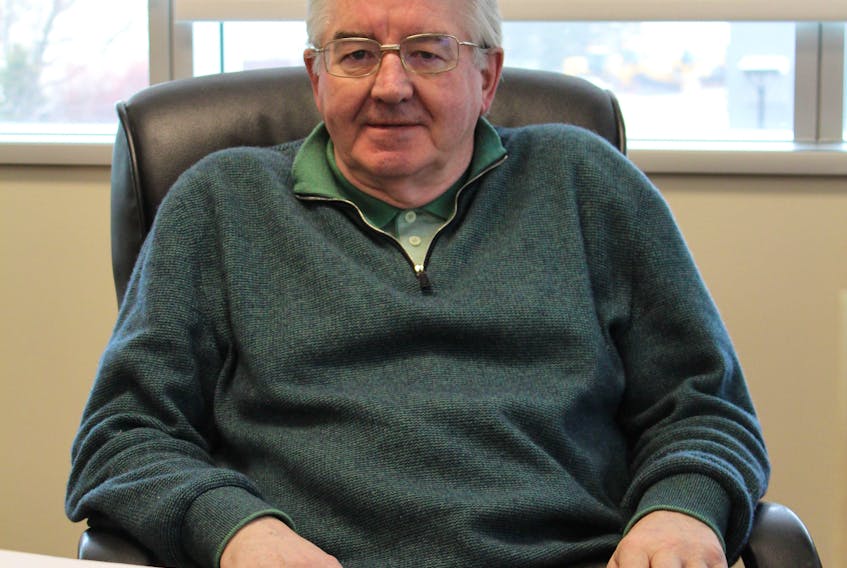To scan or not to scan, that is the question.
If you do, what additional effects will a CT scan have on your overall health and well-being?
Unlike conventional X-rays, CT — short for computed tomography — provides a detailed, three-dimensional image of internal organs, which helps physicians diagnose and track the spread of disease.
CT scanning is an important tool that helps physicians diagnose cancers and other conditions. However, the scans can carry their own risks. It is an important tool, but not risk-free, as the cancer risk of too many CT scans is high.
The Quality of Care N.L./Choosing Wisely N.L. initiative at Memorial University’s faculty of medicine is urging the public to talk to their physicians about testing options and use caution when health issues arise.
“We need to continue the conversation so people will know the potential harms that could occur,” Dr. Patrick Parfrey, clinical leader for Quality of Care N.L./Choosing Wisely N.L., said Friday morning.
“We don’t want to stop a person who needs a test from getting one, but we do want to stop those who don’t need one from getting one.”
Parfrey, citing a 2015 survey of medical imaging across Canada, revealed that residents of this province receive almost 50 per cent more CT scans than the national average.
He said there are approximately 100,000 CT scans completed in this province annually, which breaks down to 219 per 1,000 residents. The national average is substantially lower, at 150 per 1,000 residents.
A single chest scan can mean up to 70 times as much radiation as a chest X-ray, Parfrey said.
Exposure to unnecessary radiation may increase the risk of cancer, so it is important to balance the benefits and risks when deciding to have a CT scan.
In addition, Parfrey said CT scanning is a vital diagnostic tool that helps save lives, but health-care providers and patients should always be cautious about over-testing, especially when the risk of harm is present.
The province has recently put CT scanners into each region of the province. Many of these regions lack the resources to test for any number of issues, but they can and often do order a CT scan.
“This access actually causes delays for the people who really need them, who are waiting behind others who actually don’t,” he said.
“Patients are concerned with access. They want to get in (to see a doctor) in a reasonable amount of time. We know this because our studies have told us that.”
Parfrey said those studies have looked at the harms vs. the benefits of having a CT scan, and those analytics alerted them that there was an issue.
He said doctors have not made much of an effort to educate the public on issues like these, and it is important to use the media as a vehicle to get that message out, along with the regular avenues already being employed such as websites, social media and good old-fashioned conversations between doctor and patient.
“It is the harm we are concerned about. This is not a week-to-week thing, it is year-to-year and beyond,” he said.
“The Newfoundland and Labrador public think there is an overuse of health-care resources. We have done the studies and the numbers show this.”
He used sports as an example, saying that if someone bangs their head and gets a concussion, a CT scan shouldn’t be done unless there is a red flag that says there are serious symptoms there that warrant taking a closer look.
Another area where Parfrey said CT scans are done unnecessarily is when people experience back pain, or pain that lingers that is in fact common or chronic. He said it is likely those issues will get better over time and even in the case of sciatica, there is no need for a CT scan.
“Doctors have expressed to us that the first thing a patient wants is a scan. They don’t take the necessity of that scan into consideration or the harm it could be doing to them,” he said.
“The doctor really needs to have a conversation with the patient about the pros and cons of having a CT scan.”
Parfrey said if the symptoms linger after a patient sees a doctor, it is critical to let a doctor diagnose the issue and have a conversation with the patient about the best possible care options.
That doesn’t include having a CT scan if it is not necessary.
As part of a Quality of Care N.L./Choosing Wisely N.L. awareness campaign, physicians throughout the province will receive an information package and tools, including posters and discussion aids, to help them better explain the risks and benefits of CT scans to their patients.









